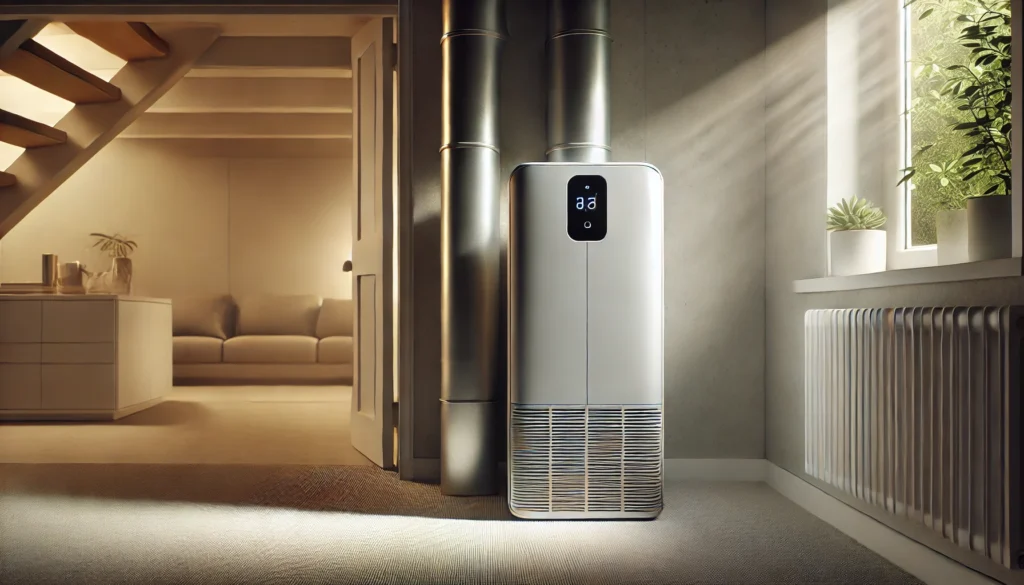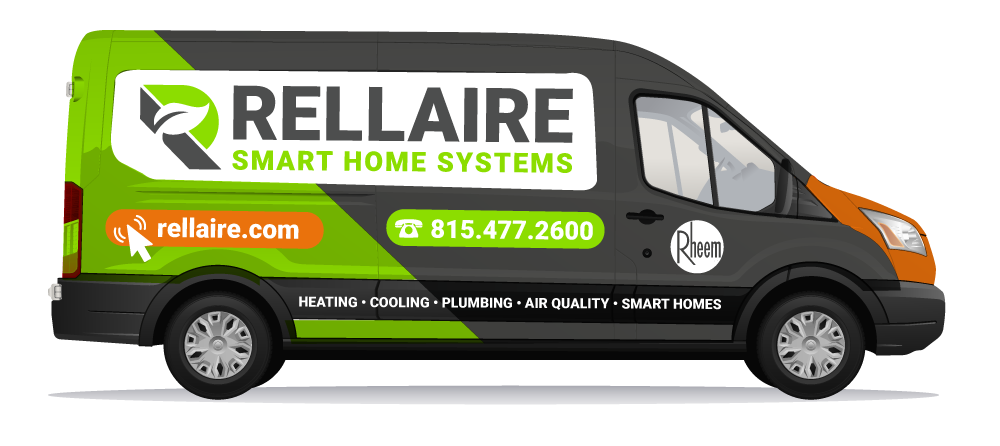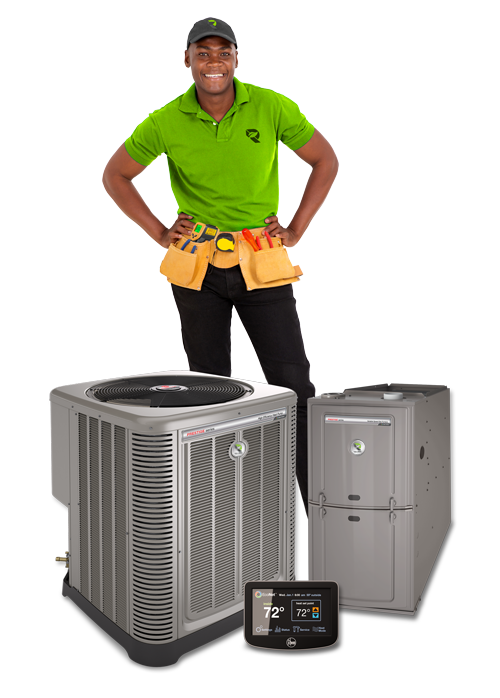Benefits of Enhanced Air Filtration
Integrating enhanced air filtration systems into your home’s heating and ventilation setup provides several significant benefits that contribute to a healthier living environment and improved system efficiency. Here’s a detailed look at the key advantages:
Improved Air Quality
One of the most immediate and noticeable benefits of enhanced air filtration is the significant improvement in indoor air quality. High-efficiency air filters, such as HEPA filters, can trap microscopic particles that are often missed by standard filters. This includes pollutants like pollen, pet dander, dust mites, and smoke particles. By capturing these irritants, enhanced air filtration systems help reduce the risk of respiratory problems, allergic reactions, and other health issues caused by poor air quality.
Reduction in Allergy and Asthma Triggers
For individuals suffering from allergies or asthma, the quality of the air they breathe can have a direct impact on their health and comfort. Enhanced air filtration systems remove allergens and triggers from the air more effectively than standard systems. This cleaner air can lead to fewer allergy symptoms and less frequent asthma flare-ups, creating a more comfortable and healthier environment for everyone in the home.
Extended HVAC System Life
The accumulation of dust and debris in a furnace or HVAC system can lead to increased wear and tear, potentially reducing the lifespan of the system. Enhanced air filtration helps prevent this buildup by trapping more particles before they can enter the system. This cleaner operation means fewer mechanical issues and maintenance calls, ultimately extending the life of the HVAC system and saving homeowners on costly repairs and replacements.
Energy Efficiency
When HVAC systems accumulate dust and debris, they have to work harder to circulate air throughout the home, which can lead to increased energy consumption. By maintaining cleaner internal components through enhanced air filtration, systems can operate more efficiently. This improved efficiency not only reduces energy usage but also lowers monthly utility bills, making it a cost-effective solution for homeowners.
Better Odor Control
Enhanced air filtration systems are also effective at removing odors from the home, which can be caused by cooking, pets, smoking, and other sources. Filters that include activated carbon or other odor-neutralizing materials are particularly good at absorbing smells, leaving the indoor air not only cleaner but also fresher.
By choosing a system like those offered by Rellaire Smart Home Systems, homeowners can ensure that their air filtration is not just a peripheral feature but a central component of their home’s health and energy strategy.
Types & Brands of Air Purifiers
When selecting an air purifier, there are various brands and types available, each with unique features and technologies suited to different needs and preferences. Here’s an overview of some popular brands and types of air purifiers:
Popular Brands of Air Purifiers
Each brand and type of air purifier offers unique benefits and may be more suited to certain environments or specific needs. When choosing an air purifier, consider factors like room size, the specific contaminants you need to remove, noise levels, and energy efficiency to find the best fit for your space.
Honeywell
Honeywell is known for producing a range of air purifiers that cater to various room sizes and have high-efficiency particulate air (HEPA) filters. These devices are often praised for their durability and effectiveness in removing a high percentage of particles and allergens from the air.
Dyson
Dyson air purifiers are recognized for their innovative design and technology. They often combine air purifying with other functionalities such as cooling and heating. Dyson models typically feature HEPA filters and are designed to be aesthetically pleasing and user-friendly.
Blueair
Blueair offers air purifiers with HEPA Silent technology, which combines mechanical and electrostatic filtration to capture particles. These units are highly efficient and designed to operate quietly, making them suitable for bedrooms and other quiet spaces.
Levoit
Levoit is a popular choice for many households due to its range of affordable air purifiers that include features like true HEPA filters, activated carbon filters, and smart capabilities for monitoring and controlling indoor air quality.
Philips
Philips air purifiers often come equipped with multi-stage filtration systems, including pre-filters, HEPA filters, and activated carbon filters. They are known for their high-quality build and features like air quality sensors and auto modes that adjust settings based on real-time air quality readings.
Types of Air Purifiers
HEPA Air Purifiers
High-Efficiency Particulate Air (HEPA) purifiers are among the most common and are known for their ability to trap 99.97% of particles that are 0.3 microns or larger. These are ideal for removing common allergens such as dust, pollen, mold spores, and pet dander.
Activated Carbon Air Purifiers
While HEPA filters are great for particles, activated carbon filters excel at removing gases and odors. These filters are made of carbon that’s been treated to open up millions of tiny pores between carbon atoms, which adsorb volatile organic compounds (VOCs), odors, and smoke.
UV Air Purifiers
These air purifiers use ultraviolet light to inactivate airborne pathogens and microorganisms like mold, bacteria, and viruses. However, they should be used in conjunction with a filter-based air purifier since UV light alone doesn’t remove particles from the air.
Ionic Air Purifiers
Also known as ionizers, these purifiers use charged ions to clean the air. The ions attach to airborne particles, making them attract to surfaces or to each other and settle out of the air. While effective in some contexts, they can produce small amounts of ozone, a lung irritant.
Ozone Generators
Ozone generators are a controversial type of air purifier since ozone can be harmful to lung health. They are typically used for commercial purposes or in unoccupied spaces to remove odors or pollutants but are not recommended for residential settings where people are present.
Each brand and type of air purifier offers unique benefits and may be more suited to certain environments or specific needs. When choosing an air purifier, consider factors like room size, the specific contaminants you need to remove, noise levels, and energy efficiency to find the best fit for your space.



